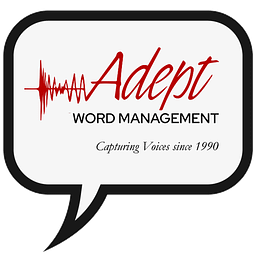Darndest was a word a transcriptionist asked me about a few weeks ago—well, actually it was doggoned-est! Merriam-Webster actually lists doggoned, but we had to figure out how to add the “est.” I thought a hyphen captured the spirit of the expression best. Doggonedest looks weird and indecipherable. The gentleman saying doggoned-est wasn’t trying to be weird or obscure; he was remembering his frustration. These oral histories were collected in the 2000s, but the speakers fought in World War 2, and their speech habits often reflect that. I think when they are reflecting on times long gone, they remember their old speech habits, too.
Cattywampus came up in the context of trying to reach people without letting the message fall apart or go cattywampus. This one wasn’t from an oral history, it was from a sermon we transcribed. The audience for whom the message was intended seems too sophisticated for the word, but that’s based on my understanding of cattywampus’ it seems like a very old-fashioned Americanism. Cattywampus is listed in Merriam-Webster as a variation of catawampus, and the first definition is fierce, savage, destructive. I’m not familiar with that sense of cattywampus or even the word catawampus; I’ve always heard cattywampus used in the sense of confused or awry, the second definition listed; I think of everything falling apart when I hear cattywampus.
That second definition, confused or awry, also refers to cater-cornered, as in awry. I’ve always heard catty-cornered, but Merriam-Webster lists only kitty-cornered. Catty-corner means diagonally across a square, right? Merriam-Webster lists this fascinating entymology:
Catercorner gets its first element from the Middle French noun quatre, meaning “four,” which English speakers modified to cater and applied to the four-dotted side of a die—a side important in several winning combinations in dice games. Perhaps because the four spots on a die can suggest an X, cater eventually came to be used dialectically with the meaning of “diagonal” or “diagonally”; cater was then combined with corner to form catercorner. Eventually the variants kitty-corner and catty-corner, which are now the more common forms, developed. Despite all appearances, these terms bear no etymological relation to our feline friends.
I’m sure my blind cat, Mr. Isaac Newton, will be disappointed to hear that. He thinks every word bears an etymological relation to cats! And I wonder what winning combinations they’re referring to—games where 11 wins, certainly.
When I was growing up in northeastern Ohio, we used catty-corner to identify which house we were referring to, north east corner was way too complicated. The preferred method was to identify one of the houses to establish a base, then identify the house that was catty-corner from there. It wasn’t until I moved to the southern U.S. that I encountered cattywampus.
The Sunday-go-to-meeting comment came up from a gentleman who fought in World War II. He talked about racing to get to a dance at the Y while he was in high school before he went off to the war. He said he worked in a grocery store, Kennedy’s Butter & Egg Store, stores that used to be well-known in the New England area. You could get fresh eggs, and the butter came in big tubs. Customers would come in and ask for a pound and you’d cut out a piece of butter for them. He’d work on Saturdays, then race home to change and get to the dance. He’d have his clothes all laid out so he could make it to the dance quickly, and remembered one evening when his younger brother changed into the clothes and went off to the dance! As our interviewee remembered it, he was glad his brother survived the incident!
The kind of travel we’re so used to was uncommon then. A lot of these men—and the interviewees are almost all white men; women, Asian, or Black soldiers were interviewed, but their oral histories are few and far between—had barely traveled 50 miles before they went to the war. They heard about the bombing of Pearl Harbor on the radio, if they had one, or read about it in the newspaper.
Their remembered speech patterns reflect that parochialism, just the expression a dance at the Y can be hard to decipher today. Our most prevalent reference to the YMCA is the song by The Village People.
Capturing these expressions is part time travel. The people who are telling their stories are transported back to a time long ago. And when we listen, we’re trying to connect to that time and place.

